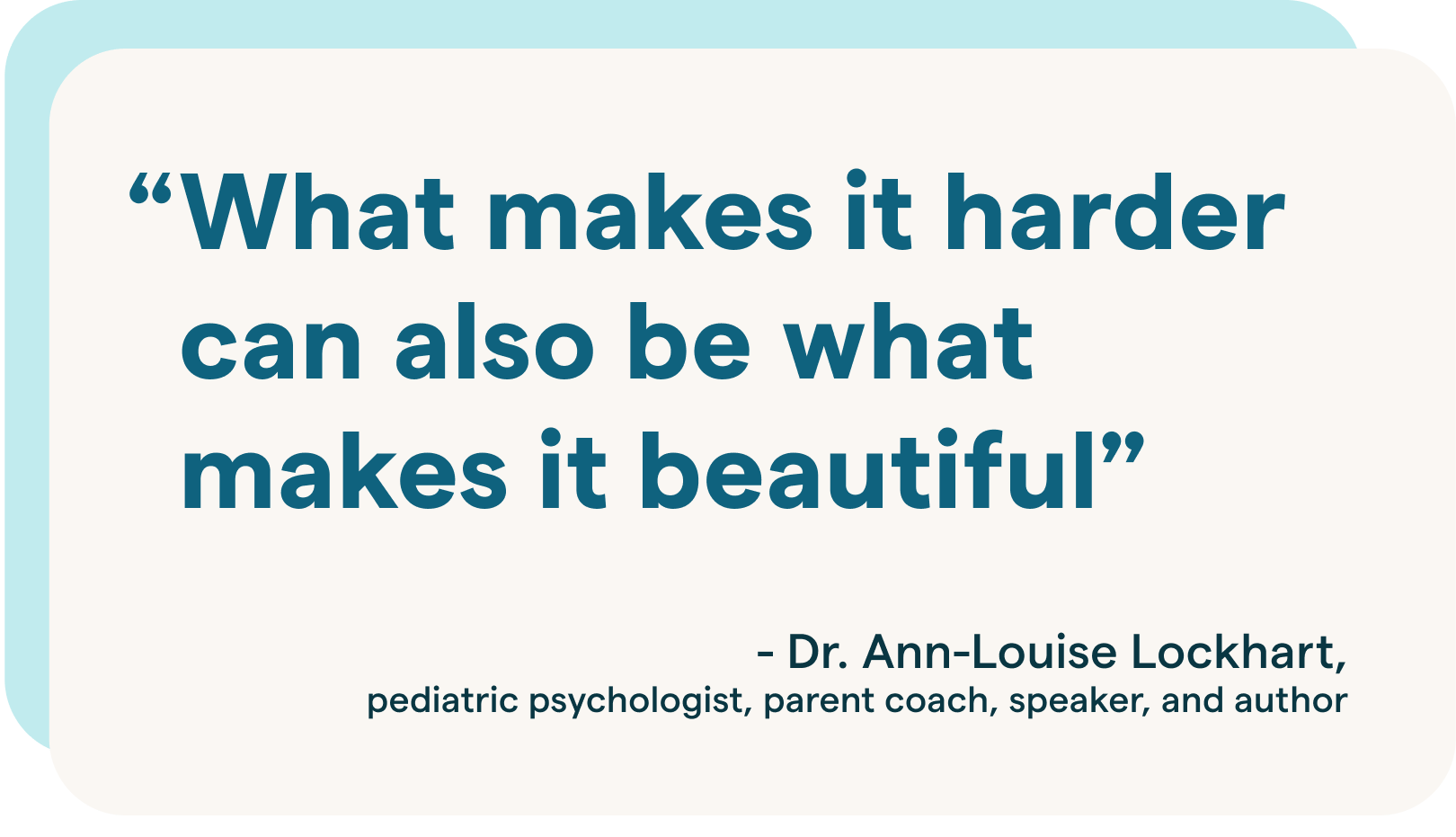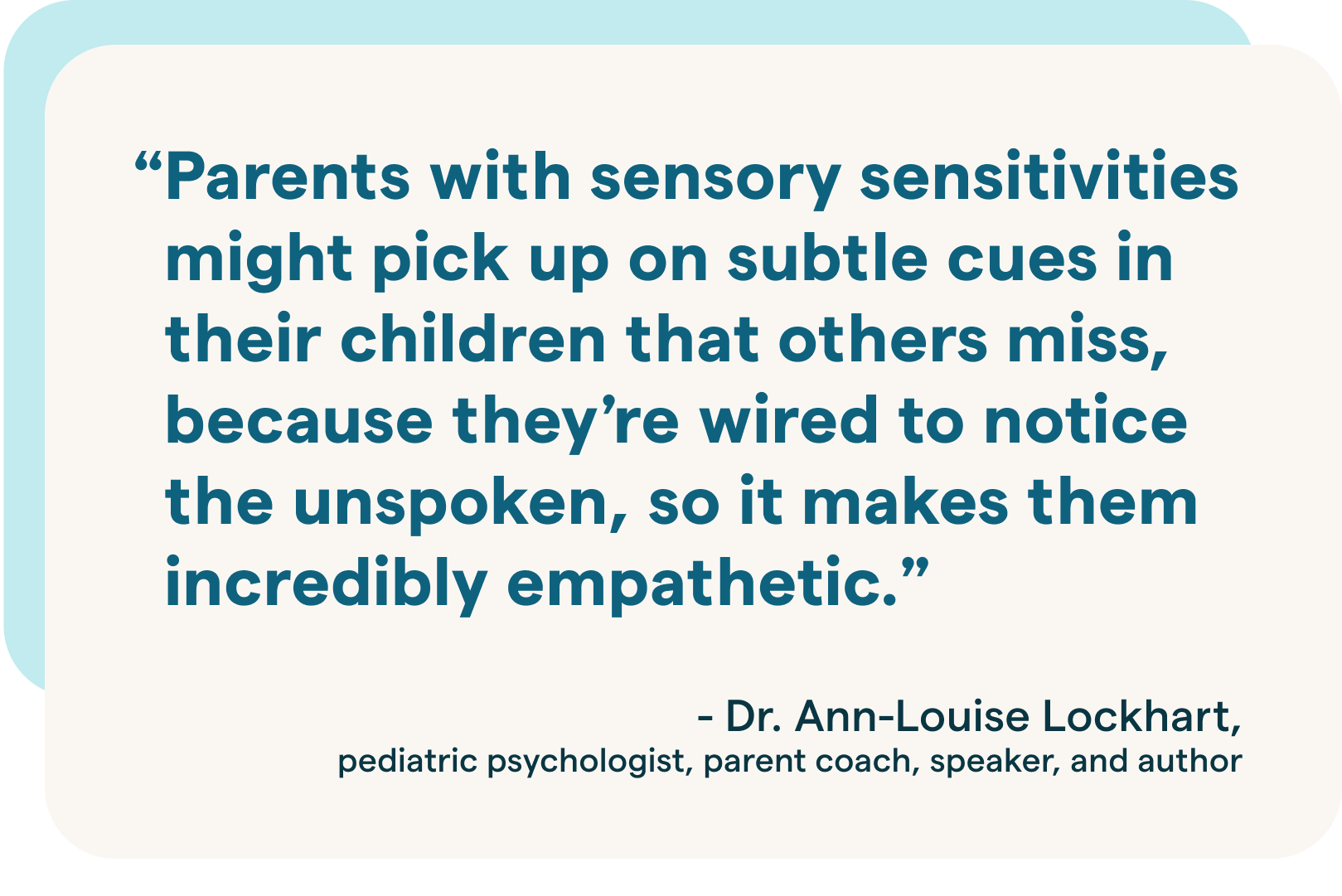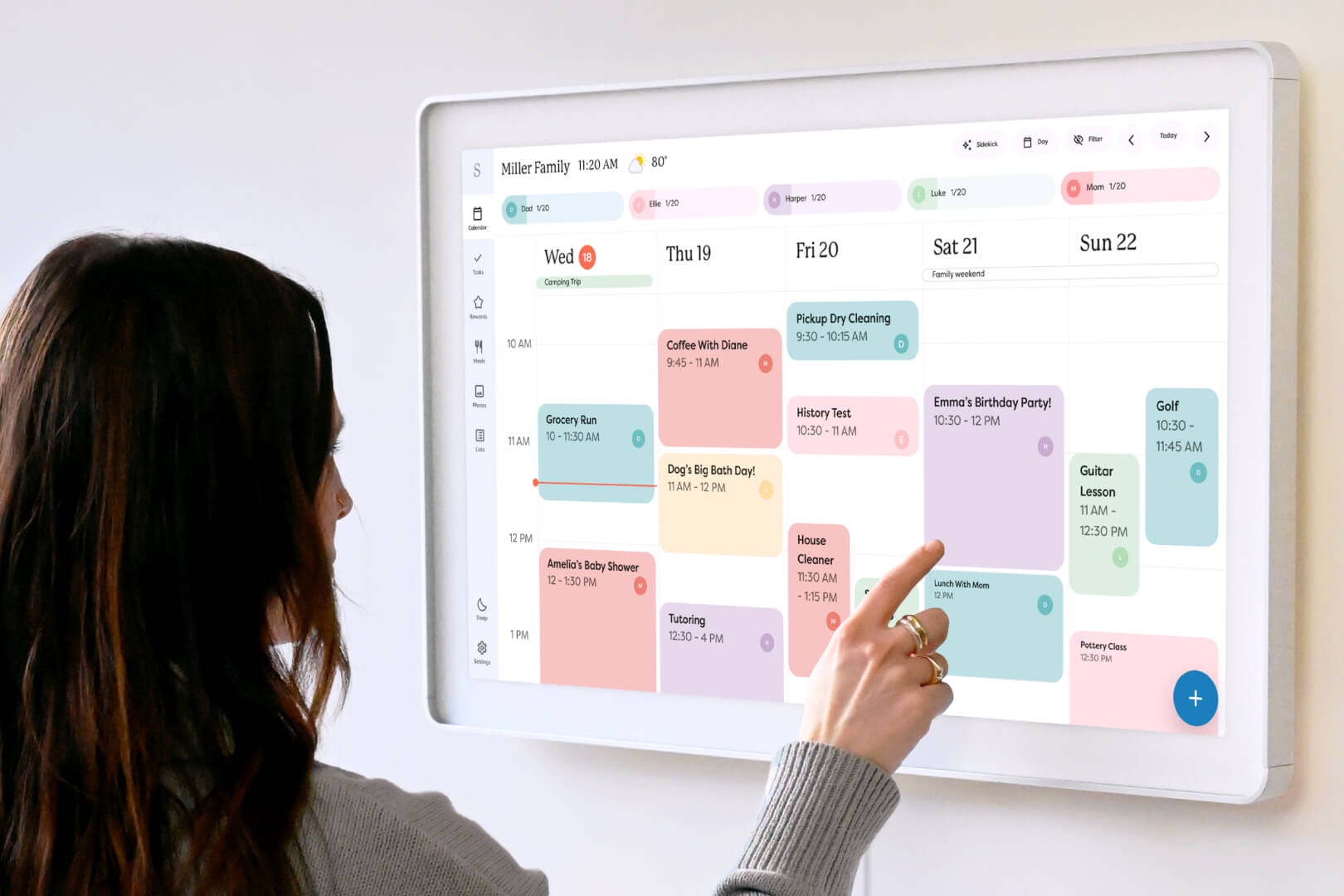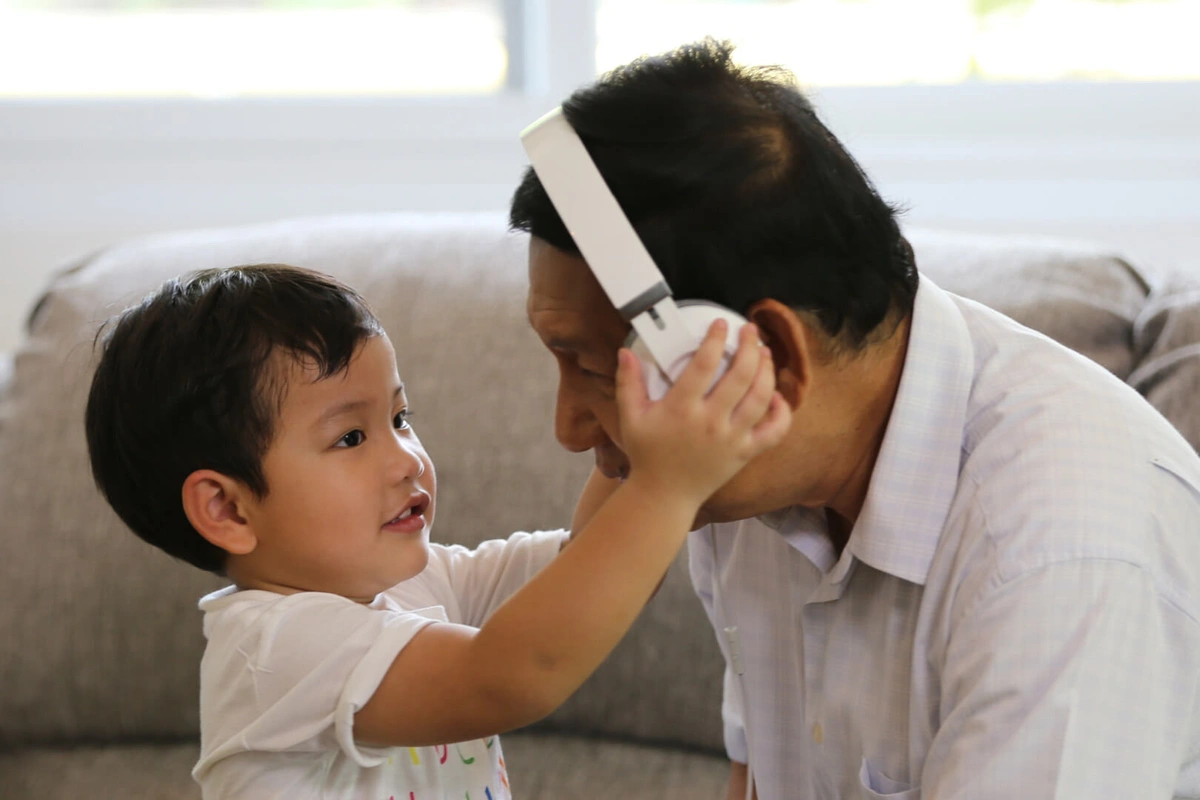Parenting as a Neurodivergent Mom or Dad: Executive Function Tips & Support Systems

We all know this, but it’s worth saying: parenting is hard. Parenting while also navigating your own neurodivergence, whether that’s ADHD, autism, sensory processing challenges, or something else entirely, adds another layer of complexity.
But it also brings a kind of insight and empathy that’s hard to teach. You might see the world a little differently. You might feel things more deeply. You might thrive with structure, or rebel against it entirely. And all of that shapes the kind of parent you are.

“What makes it harder can also be what makes it beautiful: ADHD parents are creative thinkers and natural problem-solvers. They can shift gears quickly, be spontaneous and fun, follow a child’s imagination, and build magical moments out of everyday chaos.” - Dr. Ann-Louise Lockhart, pediatric psychologist, parent coach, speaker, and author
This isn’t a list of things to fix. It’s a space to feel seen. We’re exploring what it’s really like to parent as a neurodivergent mom or dad, from executive function fatigue to sensory overload to the moments when your neurodivergence becomes your superpower.

What Does It Mean to Be a Neurodivergent Parent?
Neurodivergent is a non-medical umbrella term that includes a wide range of neurological differences, including ADHD, autism, dyslexia, sensory processing disorder, and more. These are not deficits, they’re different ways of experiencing the world.
As a parent, neurodivergence can impact everything from:
-
Executive function (remembering appointments, planning meals, managing logistics)
-
Sensory regulation (getting touched-out, overstimulated by noise or clutter)
-
Emotional regulation (difficulty staying calm during meltdowns or transitions)
-
Energy and focus (especially when routines are disrupted)
For some, parenting brings these challenges into sharper relief. For others, it brings unexpected clarity.
“Parents with sensory sensitivities might pick up on subtle cues in their children that others miss, because they’re wired to notice the unspoken, so it makes them incredibly empathetic.” - Dr. Ann-Louise Lockhart

Why It’s Often Invisible Work
If you’re parenting with ADHD or another invisible neurodivergence, there’s a good chance you’ve masked it at home, at work, or in your friend group. Maybe even for years.
And while parenting often demands you “keep it together,” neurodivergence doesn’t always play by those rules.
You might struggle to:
-
Get out the door on time with everyone dressed and fed
-
Keep up with school communication and deadlines
-
Manage daily transitions without friction
But these challenges don’t mean you’re failing. They just mean your brain is operating in a system that wasn’t built for it.
“Your neurodivergence isn’t something to hide or fix. It’s something to understand, so you can work with it, not against it. When you stop fighting the way your brain is wired, and instead start parenting in ways that honor how you function best, everything shifts. You become more resourced, more regulated, and more available to show up as the parent you want to be.” - Dr. Ann-Louise Lockhart

How Neurodivergence Can Interact With Parenting
Being a neurodivergent parent doesn’t just shape how you experience the world, it can also influence how you show up in family life. For many moms and dads, this brings a mix of challenges and unexpected strengths.
-
Executive function meets family chaos: Tasks like remembering permission slips, planning meals, or juggling multiple schedules can feel especially overwhelming if you struggle with organization, focus, or time-blindness.
-
Sensory needs in a sensory-heavy world: Parenting often comes with loud noises, sticky hands, and unpredictable environments. For some, that can trigger sensory overload; for others, it can make quiet, calm moments with kids even more meaningful.
-
Emotional intensity: Many neurodivergent parents describe feeling emotions deeply. That can mean extra patience and empathy with kids, but it can also mean being more easily drained or overstimulated.
-
Unique connection: Parents with ADHD, autism, or other neurodivergent traits often bring creativity, humor, and fresh perspectives to their kids’ lives. Some find it easier to relate to their children’s big feelings because they’ve lived something similar themselves.
-
The double load: While managing your child’s needs, you’re also managing your own. That can feel heavy, but it also gives you insight into the importance of compassion, accommodations, and flexibility at home.

ADHD Parenting Tips That Actually Help
If you’re parenting with ADHD, these strategies might help you and your kids:
-
Externalize everything: Write it down. Use checklists. Set 3 alarms if you need to. ADHD brains benefit from structure outside the brain, not inside it.
-
Time blindness tools: Visual timers, phone reminders, and verbal cues can help you keep track of time without spiraling into hyperfocus or forgetfulness.
-
Start with one routine: Morning routines tend to fall apart first. Choose one small win (like brushing everyone’s teeth after breakfast instead of before) and build from there.
-
Forgive the mess: ADHD often comes with clutter. That doesn’t make you a bad parent. You’re allowed to have a “clean enough” standard.
What to Do When You Feel Overstimulated as a Parent
Parenting with sensory processing sensitivity or sensory overwhelm is a full-body experience. It’s not just “annoyance,” it’s a nervous system flooding with input.
Try:
-
Noise-canceling headphones (even just in one ear)
-
Designated recovery time after high-input events
-
Communicating your limits to your kids: “I love you, but I need quiet right now” is a powerful phrase
Creating calm corners in your home (for them and for you)

What Helps: Executive Function Tips, Routines, Tools, and Support Systems
There’s no one-size-fits-all playbook for neurodivergent parenting. But here are a few strategies that real parents say help:
-
Visual Schedules (for you and your kids): Calendars, checklists, and visual timers can help reduce anxiety and improve follow-through, especially for families navigating ADHD or autism.
-
Reducing Decision Fatigue: Decision-making can feel like a full-time job. Try limiting your choices:
-
Meal plan the same 3 dinners each week
-
Use the same “get out the door” checklist every morning
-
Rotate outfits or pre-plan school lunches
-
-
Protecting Your Sensory Limits: You don’t have to attend every birthday party. You don’t have to listen to Cocomelon at full blast. Advocate for what you need, too.
-
Building a “Do Nothing” Day: Sometimes, the best thing you can do is… nothing. Neurodivergent brains often need intentional rest to reset—but that’s not always easy when you’re a parent. You might not be able to cancel everything, but you can cancel the extras. Lower the bar. Let the day be slower, quieter, less scheduled. Your nervous system counts, too.
Related: Morning Routines for Neurodivergent Children
What to Say to the Inner Critic
That voice that says you’re lazy, disorganized, not doing enough? It’s wrong.
Here’s what’s actually true:
-
You’re parenting in a world that isn’t always accessible
-
You’re adapting in real-time, every day
-
You’re modeling honesty and resilience for your kids
Co-Regulation: Helping Your Child Regulate When You’re Dysregulated
Neurodivergent parents often worry: How can I help my kid calm down if I’m struggling too?
Here’s the secret: regulation doesn’t mean perfection. It means presence.
-
Narrate what you’re doing to calm down: “I’m taking deep breaths so I can think more clearly.”
-
Use grounding techniques together: 5-4-3-2-1 senses check, ice cubes, movement breaks.
Say what you need: “I need one minute to reset. Then I’ll be ready to help.” -
Repair when needed: “I got overwhelmed earlier. I’m sorry I snapped. Can we try again?”
Finding Mental Health and ADHD Support for Parents
You don’t have to white-knuckle your way through parenting. Whether you’ve been diagnosed or are just beginning to explore neurodivergence, the right support can make daily life feel less overwhelming, and more manageable.
That might look like:
-
Therapy (individual or family-based)
-
ADHD or executive function coaching
-
Parent support groups or forums
-
Medication to improve focus or reduce anxiety
-
Accommodations at work or school
Start by searching for “ADHD parent support groups near me” or “autism-friendly therapist for moms.” You’re not alone—and you don’t have to figure it out alone, either.
You’re Not the Only One: Real Talk from Neurodivergent Parents
If you’ve ever cried in your car after drop-off or Googled “Why is parenting so hard for me?”, you’re not alone. You’re not too much. You’re not doing it wrong. You’re not the only one.
Parenting as a neurodivergent mom or dad can feel isolating—but there’s comfort in hearing from others who get it. Whether you’re navigating sensory overload, missing school emails, or trying to stay regulated during a toddler meltdown—it’s valid. And it’s more common than you think.
At Skylight, we believe families work best when they work together, and that starts by saying the hard stuff out loud.
Want proof you’re not the only one? Read real, anonymous confessions from other parents.
ver time helps reduce the frequency.
Special thanks to…
-
Dr. Ann-Louise Lockhart is a pediatric psychologist, parent coach, speaker, and author who helps overwhelmed parents raise confident, emotionally healthy kids and teens. As the founder of A New Day Pediatric Psychology, she empowers families to move from chaos to connection using practical tools rooted in clinical expertise and real-life parenting. She is the author of an upcoming book launching October 28, 2025 titled, Love the Teen You Have: A Practical Guide to Transforming Conflict Into Connection. She has been featured in The New York Times, Parents, HuffPost, and on The Today Show. Her dynamic, relatable style has made her a trusted voice for parents nationwide.
